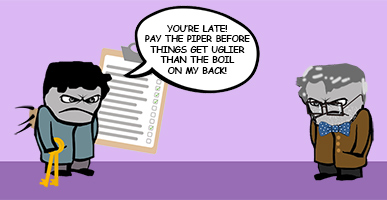 As a tenant, you have many rights under the law. Most landlords are required to treat tenants fairly, but some tenants face discrimination and other complexities. The first step in defending your rights is to understand the law. The federal Fair Housing Act prohibits discrimination against tenants and prospective renters based on protected characteristics. Some states also extend this protection to other classes of people, such as minorities and people with disabilities.
As a tenant, you have many rights under the law. Most landlords are required to treat tenants fairly, but some tenants face discrimination and other complexities. The first step in defending your rights is to understand the law. The federal Fair Housing Act prohibits discrimination against tenants and prospective renters based on protected characteristics. Some states also extend this protection to other classes of people, such as minorities and people with disabilities.
If you are being evicted without adequate notice, you may have the right to sue your landlord. In some cases, a landlord may be able to rely on an implied warranty of habitability to defend itself from eviction. In such a case, a landlord is liable for damages up to two months’ rent and your reasonable attorney’s fees. However, it is important to note that a breach of local housing codes will not automatically entitle a tenant to withhold rent. You must prove that the rent is more than two months’ worth of damages.
Another option for defending your rights as a tenant is to file a lawsuit for wrongful eviction. A court will try to place the tenant in the position they would have been in if the breach hadn’t occurred. The damages for a breach of implied warrantability are typically calculated by subtracting the fair rental value from the habitable value of the property. There is no need for expert testimony, because courts have ruled that both the landlord and the tenant are competent to testify.
In Illinois, a landlord has the right to reject applicants based on their bad credit, lack of references, or inability to pay rent on time. A landlord cannot reject a tenant based on race, religion, national origin, or sex if he or she does not meet certain qualifications. In addition, a landlord is not allowed to discriminate based on the family status of a tenant.
If you are a tenant, a lawyer can help you defend your rights. A landlord-tenant attorney can be expensive, but he or she can protect your rights and your interests. As a tenant, it is important to know what your legal rights are and how to protect them. While a lawyer will not represent you in court, it is always worth a shot. A qualified landlord-tenant attorney can protect your legal rights and interests.
Tenants have the right to privacy. Landlords are not allowed to enter a tenant’s home without notice. While some states allow landlords to conduct background checks, they must give a tenant proper notice before doing so. Often, this means the landlord should provide a copy of the background check before allowing access to their property. A reasonable amount of privacy means you have the right to a reasonable level of privacy. If a landlord doesn’t respect the rights of a renter, you have the right to file a complaint with the Department of Housing and Urban Development. To learn more on how you could defend your right as tenant visit https://www.chicagolandlordtenantattorneys.com/tenant-attorney/.